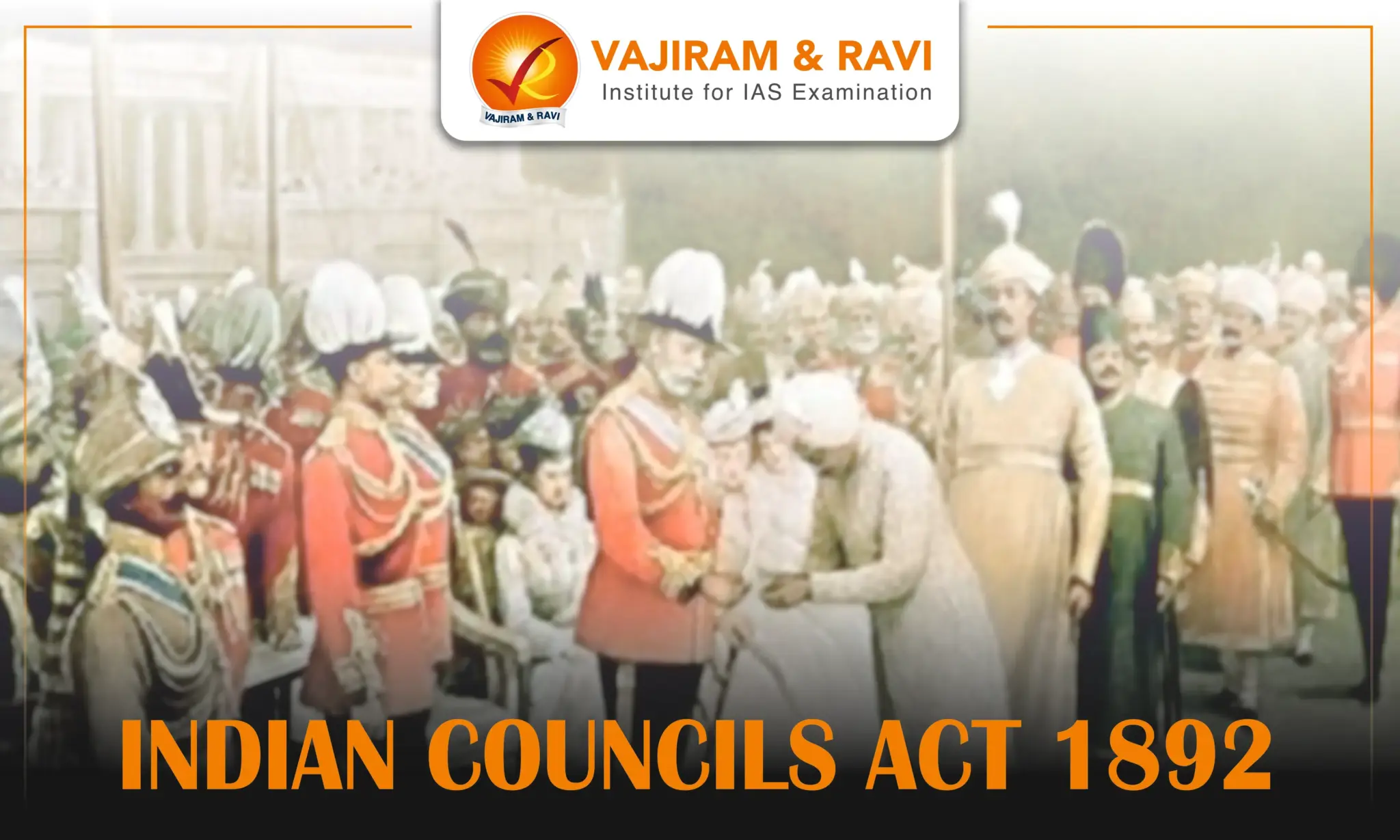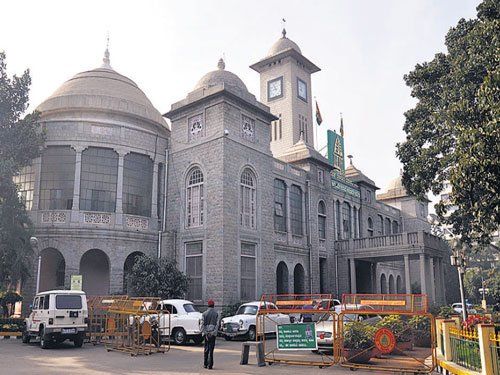The Indian Councils Act of 1892 was a significant legislative reform enacted by the British Parliament to change India's governance structure during colonial rule. It broadened legislative councils' powers and functions, indicating an initial shift towards limited representative governance. This Act was part of the British's broader strategy to address growing demands from Indian leaders for greater participation in governance.
While it gave Indians only limited political power, the Act is regarded as a forerunner to more inclusive reforms, paving the way for future legislative changes and, eventually, a push for self-government in India.
Indian Councils Act 1892 Background
The Indian Councils Act of 1892 was passed against the backdrop of rising political awareness and nationalist sentiment in India in the late nineteenth century. The formation of the Indian National Congress in 1885 was a pivotal moment, giving educated Indians a platform to demand greater political rights and participation in government. The Congress saw reforming legislative councils as critical to larger political change.
- In response to these demands, the British government passed the Act of 1892, which was introduced by Lord Cross, Secretary of State for India.
- The Act increased the number of non-official members of legislative councils, aiming to appear progressive while maintaining British control.
- This expansion was designed to appease Indian leaders while not undermining British authority.
Indian Councils Act 1892 Provisions
The Indian Councils Act of 1892 increased Indian participation by adding more non-official members and allowing local bodies to recommend candidates. It introduced indirect elections, permitted discussions on financial matters, and allowed members to question the executive, enhancing accountability.
- Increase in Non-Official Members: The Indian Councils Act 1892 increased the number of non-official members on the Central and Provincial Legislative Councils, allowing for greater Indian participation.
- Bombay: 8 members.
- Madras: 20 members.
- Bengali: 20 members
- North-Western Province: 15 members.
- Oudh has fifteen members.
- Central Legislative Council: Minimum of 10, maximum of 16 members.
- Legislative Council Expansion: The Act resulted in the addition of more members to the Governor-General's Legislative Council, also known as the Indian Legislative Council, allowing for greater Indian participation.
- Local Bodies Empowered: Local entities such as universities, district boards, municipalities, zamindars, trade groups, and chambers of commerce were given the authority to recommend members to Provincial Councils, thereby introducing a form of representation.
- Indirect Elections: While the Act did not explicitly mention "elections," it did include an indirect electoral process for selecting some non-official members, indicating a shift towards representative governance.
- Rights to Express Views on Financial Matters: Members of legislative councils were granted the right to discuss and express their opinions on financial statements that were to be presented in the legislature.
- Right to Question the Executive: Legislators were allowed to question the executive on public interest issues as long as they provided a six-day notice, increasing transparency and government accountability.
Indian Councils Act 1892 Significance
The Indian Councils Act of 1892 was a watershed moment in Indian constitutional history, paving the way for representative government and increased political participation, while also sparking revolutionary movements due to its limited reforms.
- Constitutional Milestone: The Act is regarded as a watershed moment in Indian constitutional history, establishing a representative government in modern India.
- Increased Indian Involvement: By increasing the size of legislative councils, the Act enabled more Indians to participate in British India's administration, encouraging political engagement among educated Indians.
- Foundation for Representative Government: It established the foundation for a more representative form of government by allowing non-official members to serve on legislative councils.
- Catalyst for Revolutionary Movements: The Act's limited concessions were perceived as insufficient, leading to growing dissatisfaction among Indian nationalists. This dissatisfaction contributed to the rise of revolutionary forces in India, which advocated for more significant political reforms.
Last updated on December, 2025
→ Check out the latest UPSC Syllabus 2026 here.
→ Join Vajiram & Ravi’s Interview Guidance Programme for expert help to crack your final UPSC stage.
→ UPSC Mains Result 2025 is now out.
→ UPSC Notification 2026 is scheduled to be released on January 14, 2026.
→ UPSC Calendar 2026 is released on 15th May, 2025.
→ The UPSC Vacancy 2025 were released 1129, out of which 979 were for UPSC CSE and remaining 150 are for UPSC IFoS.
→ UPSC Prelims 2026 will be conducted on 24th May, 2026 & UPSC Mains 2026 will be conducted on 21st August 2026.
→ The UPSC Selection Process is of 3 stages-Prelims, Mains and Interview.
→ UPSC Result 2024 is released with latest UPSC Marksheet 2024. Check Now!
→ UPSC Prelims Result 2025 is out now for the CSE held on 25 May 2025.
→ UPSC Toppers List 2024 is released now. Shakti Dubey is UPSC AIR 1 2024 Topper.
→ UPSC Prelims Question Paper 2025 and Unofficial Prelims Answer Key 2025 are available now.
→ UPSC Mains Question Paper 2025 is out for Essay, GS 1, 2, 3 & GS 4.
→ UPSC Mains Indian Language Question Paper 2025 is now out.
→ UPSC Mains Optional Question Paper 2025 is now out.
→ Also check Best IAS Coaching in Delhi
Indian Councils Act 1892 FAQs
Q1. What did the Indian Councils Act 1892 introduce?+
Q2. Why did the Indian Council Act 1892 fail?+
Q3. Who was the Viceroy during the Indian Council Act 1892?+
Q4. What is the Kimberly clause in the 1892 Act?+
Q5. What were the limitations of the Indian Councils Act of 1892?+

















